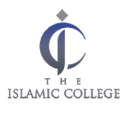ISD321 – Islamic Economics
Course Overview
This module aims to look at the key concepts and ideas within the field of Islamic economics and how they relate to contemporary economic theory and practice. By beginning with an introduction to two major financial systems students will have a background against which they may develop a comparative understanding of the Islamic economic system. The module is a good starting point for those wishing to pursue further studies leading to a career in Islamic, economics, finance, or banking. The module will provide students with an adequate understanding of the theoretical underpinnings of the Islamic system and how it proposes to deal with contemporary issues.
Module Info
- Syllabus
- Outcomes
- Strategy
- Material
sYLLABUS
- Major schools of economics: controlled economy, free economy, and mixed economy and how they compare to the Islamic model
- The concept of economy in Islam
- Islamic financial instruments: mudaraba, murabaha, musharaka, ijara, istisna’, and salam
- Interest (riba), and its impact on Muslim and non-Muslim countries
- Gharar: excessive risk and speculation, uncertainty, gambling and misrepresentation
- Takaful (insurance), sukuk (Islamic bonds), and mortgages
- Zakat and sadaqa and other forms of taxation in Islam
Learning Outcomes
Knowledge
On completion of this module the successful student will be able to:
- Compare and contrast the different theories about the Islamic economic system. (A1-A3)
- Critically evaluate main features that would help an economy to tend towards an Islamic economy. (A3, A5)
Skills
This module will call for the successful student to:
- Summarize the strengths and weaknesses of competing theories of Islamic economy. (B2, B3, C3, D1, D3)
- Critically assess different economic models of Islamic states on the basis of Islamic economy. (B3, B4, C3, D5)
Learning, Teaching and Assessment Strategy
The module will be taught through lectures, discussion, and seminars. Students’ work will be developed through consultation with the lecturer and independent research. Students will present and discuss work in progress.
Assessment Mode
Formative Assessment:
Formative assessment involves an in-depth search and review of publications related to the specific paper will be required. The module leader will regularly give feedback to student regarding the progress of their coursework, a draft copy of the completed coursework need be handed in to the module leader before the 10th learning week as part of the formative learning process. Additionally, revision sessions are arranged that will cover topics in preparation for exams, providing constructive formative feedback to students.
Summative Assessment:
Assessment for this module consists of a 1,500 words word coursework (Outcomes 1, 3) as well as a 2 hour written examination that will take place at the end of the module (Outcomes 1, 2, 3 ,4).
Assessment Weighting
Coursework: 50%
Written examination: 50%
Learning Material
Core readings
- Choudhury, M. A. (2011) Islamic Economics and Finance: An Epistemological Inquiry. Emerald Group Publishing Ltd


